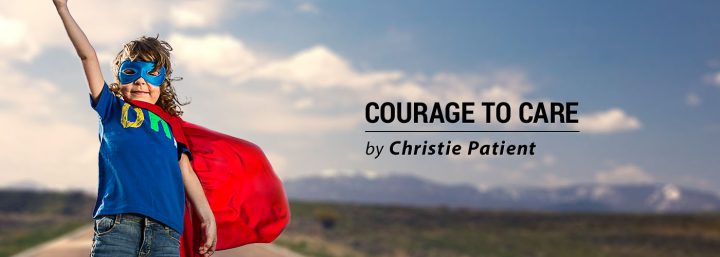Finding Community Within the Chaos
Written by |

Living through a pandemic means that people around the world are having new and uncomfortable experiences. Many, including me, are afraid. We fear for our health and for our loved ones. We fear for our economy, finances, businesses, and futures. I don’t want to diminish or ignore those fears, but I would like to focus on something positive this week.
When I wrote about silver linings two weeks ago, I focused on several personal and local things I am grateful for during this time. What I didn’t write about, and what I think is the most positive thing about the pandemic, is that it is unifying the world.
It’s unfortunate that it takes a global crisis to create global unity, but I am thankful all the same. To know that we all share the same fears and are grieving collectively for the things that we have lost, whether big or small, is comforting.
We are lucky to live at a time when we can connect with people around the world over the internet and by phone. We can find common ground, even if the physical ground we stand upon is separated by thousands of miles.
My employment at Bionews Services, the company that publishes Pulmonary Fibrosis News, has connected me to a global community of rare disease patients and caregivers. We have been having weekly “happy hour” video conferences with employees from around the globe signing on to chat. After each of these, I feel uplifted and understood. I hear stories much like the one I am living in Washington state coming out of Spain, France, Turkey, and Canada, to name a few.
These conversations are therapeutic, but they also can be educational. As I said in my column last week, the world has a lot to learn from the rare disease community right now. People who have endured a lot of suffering and isolation due to illness have learned some excellent coping skills and resilience. I asked my colleagues to share how they are coping with the stress and uncertainty, and I would like to share some ideas with you.
First, and possibly the hardest for many of us, is to be vulnerable and let the feelings come. If you need to cry due to fear, sadness, anger, or grief, do it.
Many of us find peace outdoors and in nature. We don’t have to go far to experience this. Try lying in the grass and looking at the sky, taking a walk in your neighborhood, or stepping outside to watch the sunset. These moments of solitude in nature are opportunities to let the feelings flow through us.
I have had a hard time sitting with my fear and anxiety ever since I realized that I had the power to shove it away. I am thankful for this power, but I know that experiencing and honoring fear is important for moving through it.
My best tool for getting through fear in a productive way is journaling. I have written about gratitude journaling before and how it has helped to change my mindset. If you are interested in trying this but aren’t sure how, the app Presently is a great start. It’s a place to record your daily gratitudes and has prompts to get you thinking when you are having a hard time.
Many folks said that they have found strength and calm in prayer or meditation. Holding space for a larger presence, whatever you believe that may be, is a great way to tap into hope. Prayer is a deeply personal act but can be done with a group as well, even from afar. I have a network of family members who set a time every day to pray together wherever they are. Participating in that was a great source of comfort to me when my mom was in the ICU.
Meditation is nice, too. Taking quiet time to turn inward while practicing breathing exercises (PF patients will recognize pursed-lip breathing) calms the nervous system. Meditation is a way to nurture your heart and find strength. If you’re like me and have a hard time quieting your brain, I recommend the app Insight Timer. It has guided meditations for beginners, and ones that target stress or sleep. It also has insightful talks, poetry, and music.
Listening to music can affect our mood. From meditative music to music that makes us want to move, it can be healing. I almost always have music on when I am at home, and I have personally enjoyed daily dance parties when the mood strikes. Getting the body in motion is a great way to release tension.
If you have more ideas, please share in the comments below.
***
Note: Pulmonary Fibrosis News is strictly a news and information website about the disease. It does not provide medical advice, diagnosis, or treatment. This content is not intended to be a substitute for professional medical advice, diagnosis, or treatment. Always seek the advice of your physician or other qualified health provider with any questions you may have regarding a medical condition. Never disregard professional medical advice or delay in seeking it because of something you have read on this website. The opinions expressed in this column are not those of Pulmonary Fibrosis News or its parent company, Bionews Services, and are intended to spark discussion about issues pertaining to pulmonary fibrosis.




Holly W Patient
Excellent tips. Thank you.
Bob O'Briant
Thank you.
Gordon Silcox
Checking into the chat thread.
Am a divorced 81-year old residing at a “senior living place in Alexandria, VA, at present confined to my room due to the virus. Meals delivered. Not really all bad. Diagnosed w/ IPF 5 years ago, steady currently. Thank goodness
for wi-fi!
Have enjoyed the chats.
Gordon